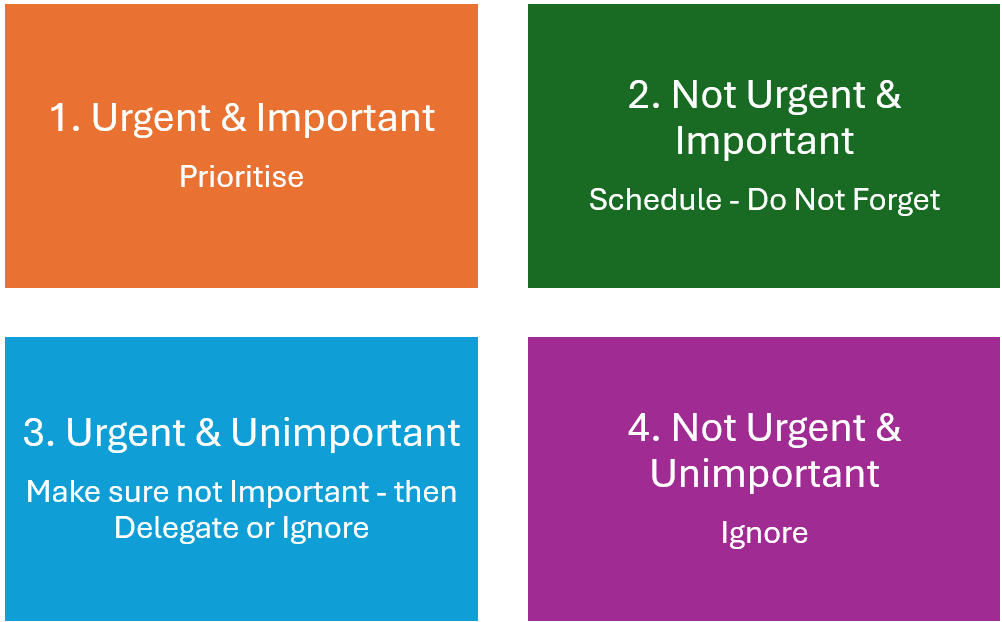The Secret to My Efficiency
The other day a colleague asked me how I’m so efficient. When I looked at her puzzled, she re-iterated that I really am efficient. This got me thinking about my approach to work and my output. Reflecting on my career and particularly the past 2 years in business, my productivity and output has improved dramatically. I do get things done quickly, effectively without much fuss.
How do I do it? Well, I lean heavily into my Strengths and apply a 3 step iterative framework to Clarify the goal, Filter the unimportant and, Focus on delivering result. This framework allows me to narrow the scope of things I’m trying to achieve so that I can do a few important things very well, rather than lots of unimportant things satisfactorily. I become a master of a few things instead of “a jack of all trades”.
Clarify
Here I use my Strategic strength to get a clear understanding of the over-arching objective (whether this is my vision, my client’s purpose or the team’s goal). If I’m identifying long term goals, I will also use my Futuristic strength to visualise the future. when doing this exercise with others, then I lean into my Command strength which is about removing ambiguity and vagueness. With the objective clear I then build out medium term targets and short-term actions to move toward the goal.
You can do this too; Just zoom out; See the big picture – Where do you, your client or your team want to be in 1 year? 5 years? 10 years?
Key Points;
- Ambiguity is the destroyer of success – Vague objectives produce unclear results.
- Knowing the big-picture objective will make it easier to identify unimportant activities that you can cut.
Filter
With my primary objective clarified, I use Strategic and Focus strengths to cull activities and actions that do not contribute to achieving the big picture goal. With filtering I am selectively curious about new information, if it is important to the mission then I take note, if it is not then I ignore it. This applies to everything in the workplace including;
- Unnecessary chatter
- CC’d emails
- Providing unsolicited advice to colleagues
- Attending meetings where I am not contributing
- Phone notifications, social media or news websites
- Office politics
Looking at the above list, it’s clear where a lot of a lot of time and productivity is lost.
I tend to rely on the Eisenhower Matrix to identify what is important, and what isn’t. It’s surprising how much of the work we do is busy work that falls into category 3 & 4.
But if that doesn’t work for you apply the Pareto (80/20) principle (where 20% of activities produce 80% of results) is a good way to declutter your workday and determine what is important.
It is challenging at first, but once you have practised filtering this way through your workday enough it will become subconscious.
I’ve even found myself applying this to my personal life and I’m pleased with the results. I’ve narrowed my hobby focus to just guitar and the gym – and my progress in both areas has accelerated as a result.
Top Tips;
- Being selectively curious. Information and activities not contributing to the main objective are distractions. If you want to be efficient skip the side quests.
- Don’t confuse urgent with important – many people will make their dilemmas sound urgent and drag you in to helping them. Be conscious of this and do not get distracted from your objective, as great man once said, “Not every crisis is my crisis”.
Focus
Focus is a powerful strength, when combined with my Achiever strength it can move mountains. By Clarifying and Filtering first I can be sure that I’ll move the right mountain.
The secret to getting a lot of work done is to be able to slip into flow effortlessly. Distraction is THE enemy of flow and focus. All too often I speak with people who are pulled away from conversations by pings on their smart watches and phones. If it’s happening when you are speaking to someone right in front of you, how often is it happening when you are sitting by yourself at your desk? Phones and devices are probably the biggest killer of human productivity in the workplace.
So if you want to develop your ability to focus try this;
- Set yourself up for blocks of focussed work each day.
- Turn on “Do not disturb” mode
- If you are in an open office wear headphones and listen to white noise or nature sounds. I’ve found that music can prevent me slipping into flow.
- Do NOT be available all the time. You can practice this by ignoring a phone call from your boss, client or partner when you are in the middle of something. You will find that if it’s truly urgent and needs your immediate attention that person will call you multiple times.
Summing up
I am efficient. After writing this blog, I know it’s one of my top values. My secret is that I am intentional in how I structure my work with an emphasis on clarifying, filtering, and focussing. By clearly defining goals and eliminating distractions, I can direct my time & energy to the activities that move the needle, and in doing so I achieve higher productivity and quality in my work. But efficiency is not about doing more in less time, but rather about doing what truly matters with precision and purpose. By adopting these strategies, anyone can transform their productivity and achieve greater results.




